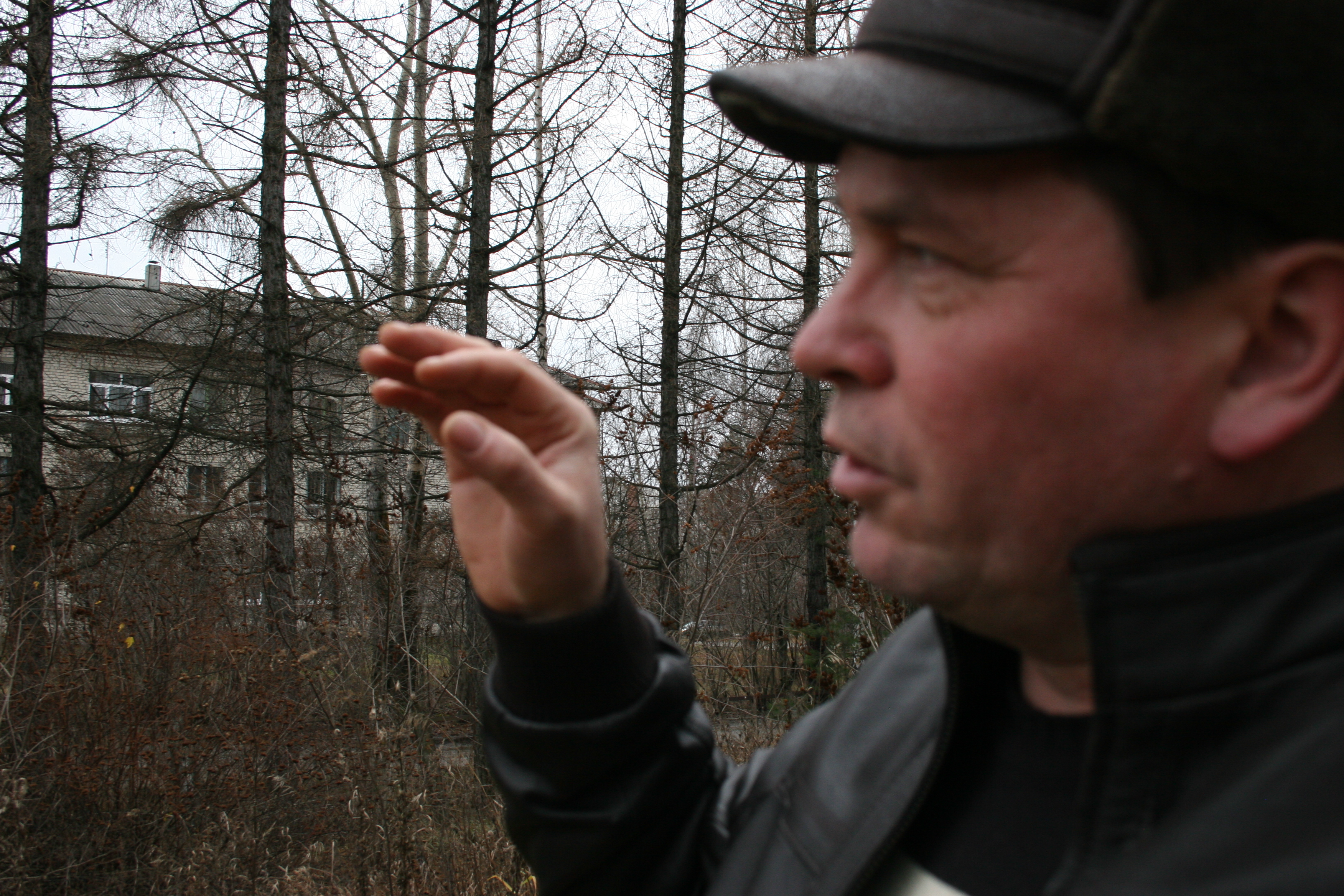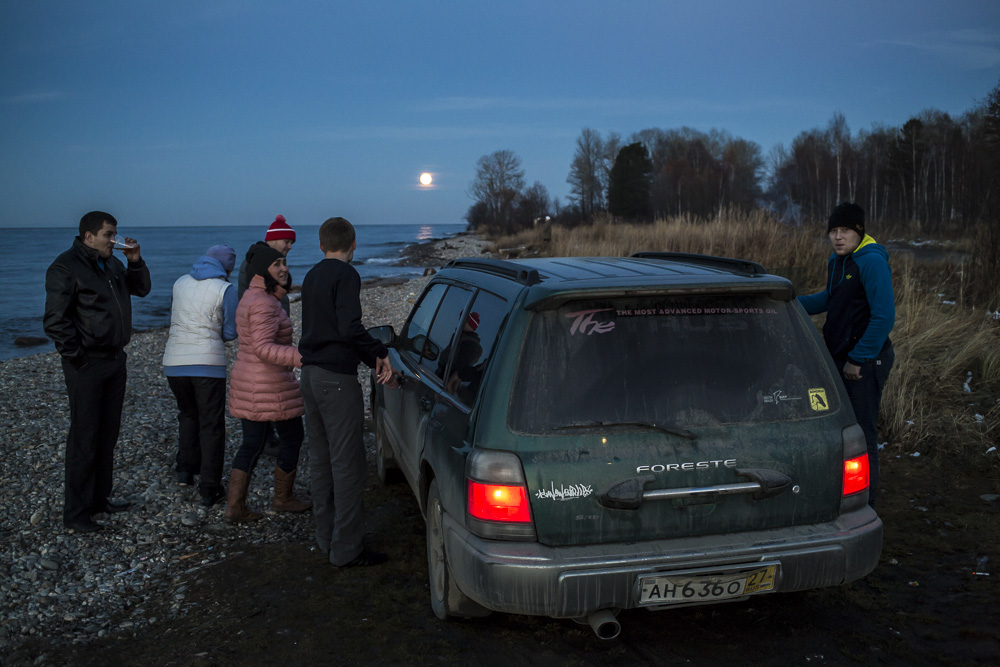
This week, Russian President Vladimir Putin again demonstrated his talent for surprise.
The almighty president — who this year managed to prevent the West from military intervention in Syria, and who, in spite of pressure from Washington, gave refuge to America's most wanted spy, Edward Snowden — pardoned his main critic and enemy, the oil tycoon Mikhail Khodorkovsky (pictured above), who had languished in jail for a decade. The unexpected release shocked the country. Before anyone knew what was happening, Putin, with the "unlimited power of a monarch," signed a pardon to release the man who had once been the richest and most powerful oligarch in Russia. On Dec. 20, Khodorkovsky left his prison in Karelia and headed off to reunite with his ailing mother, who is seeking cancer treatment in Germany.
Khodorkovsky is a former Russian tycoon who founded Yukos Oil Company, and was imprisoned in 2003 on charges of fraud and tax evasion, and later embezzlement. His trials — and espeically the second round of charges in 2007 — were widely considered to be politically motivated. While in jail, Khodorkovsky became something of a political philosopher, amassing a following and presenting a real — if neutralized — challenge to Putin's power. He published numerous political articles in independent newspapers and magazines and corresponded with famous Russian intellectuals, and is credited with inspiring the anti-Putin uprising in 2011-2012. As Khodorkovsky approached eligibility for parole, Putin was faced with a choice: take him to trial and lock him up once again, or feign having a big heart, and let Khodorkovsky free so he can visit his dying mother — just in time for the controversial Sochi 2014 Olympic games.
Ironically, the news about Khodorkovsky's freedom fell on the professional holiday for Russia's security agencies, known as "The Day of Chekist" (after the Soviet state security organization). To mark the moment, a pro-opposition TV and radio star, Tikhon Dzyadko, applauded Putin (who was once an officer in the KGB) on his Facebook page on Friday morning: "I congratulate the president of Russia on the Day of Chekist, who, whether you like it or not, beat everybody this year."
Carnegie analyst Maria Lipman agreed it was happy news, commenting, "There is no other man in Russia who could compare to Putin in influence, not even a little bit."
But the release was fishy from the start. For one thing, Khodorkovsky's lawyers seemed to know nothing about the inmate's request for pardon. For another, as Russian opposition leader Boris Nemtsov explained, "It is unclear how free he really is, and what the conditions of his release actually are." When Khodorkovsky landed in Germany, new information came out that his mother was, in fact, in Moscow. Many wondered why her son rushed to Berlin and why Russia authorities were so eager to help him obtain his visa and international passport. Some Russian bloggers found an answer, writing, "This is deportation!" Khodorkovsky's parents arrived in Berlin to meet their son early on Saturday, Dec. 21.
On top of this, another central issue is still up in the air: Did Khodorkovsky admit guilt?
Previously, the jailed tycoon and his lawyers had claimed he would never admit guilt, since that could implicate his former colleagues. But Putin knew something that even Khodorkovsky's lawyers did not. "Khodorkovsky wrote me a letter asking for a pardon," Putin explained on Thursday. Putin's spokesman told Interfax, a Russian news agency, that in asking for a pardon, Khodorkovsky had admitted his guilt.
In his first public statement on the issue, on Friday, Dec. 20, Khodorkovsky confirmed that he had asked the president to pardon him, but that "the question about his guilt was never raised."
In this case, as always, Putin was unpredictable. Only a few days ago, Russia experts told me that Putin was horrified by the idea of Khodorkovsky's freedom, and that the tycoon would remain in jail as long as Putin stayed in power. On Dec. 20, Stanislav Belkovsky, a prominent Kremlin expert, told me that Putin no longer fears Khodorkovsky: "Khodorkovsky is not a threat to Putin anymore. He is not a revolutionary, but a manager who got caught up in a game and lost." Looking back at the Putin era, I realize that very few of Belkovsky and his fellow experts' predictions came true. Last year, for example, they insisted that Putin was not going to run for reelection — and they couldn't have been more wrong.
Putin clearly has a gift for surprise — but just before the pardon announcement, Putin himself heard surprising news. Specifically, he found out just how bad life is getting for neglected Russian citizens. The president is, after all, woefully out of touch with what people from remote regions are going through, and what they want from their president.
On Thursday, Dec. 19, the president sat down for a four hour-long press conference, a sort of traditional psychotherapy session at the end of each year of his rule. Reporters came to Moscow from the most remote places to ask Putin to do something about unemployment in industrial towns, about the thousands of Russians in danger of freezing to death in Siberia for lack of heat, about the hunger strikes of desperate workers in the Far East. Putin's face looked more and more tired with each piece of bad news he heard.
When a reporter from Buryatia asked him about a local protest, he pierced her with a serious look. She pressed him to do something about the protest in her remote Siberian town of Selenginsk, by Lake Baikal. The town, which has a population of 15,000, was due to run out of coal in the middle of winter, when temperatures dropped down to -22 degrees Fahrenheit. In response, hundreds of protesters surrounded the local administration building for weeks, threatening to block the federal highway and "smash everything" if authorities did not address their problems. "I'm not just unfamiliar with the details — I know nothing at all about that problem," Putin said, seeming upset.
If I ever have a chance to talk with President Putin, I would describe life in two of the "monotowns" near Selenginsk that I visited this fall. When major industries shuttered down, companies fired thousands of workers — but in these one-industry towns, this left the town's citizens without any other options. Both Baikalsk and Vydrino sank into depression. In Baikalsk, the leader of the professional union, Yuriy Nabokov, believed that Putin was the only man who would be able to help his town and the hundreds of workers that were fired last September.
"But we wrote our desperate letters to Putin in vain. All our letters bounced back without the president's response," Nabokov said, frustrated.
It would be physically impossible for the president to read all of the desperate letters addressed to him, but I thought he might keep apprised of Russia's troubles by reading the news online. But when I asked Putin's close supporter and pro-Kremlin expert, Yuriy Krupnov, whether the president did this, he replied: "No, most of the depressing information is kept away from the president, who does not trust Internet news, so these annual press conferences are the only moments, the seconds of truth, when the president can look into the eyes of the people from troubled regions."
Putin's supporters are proud of Russia's non-drinking, non-smoking president, "Putin is free of digital addictions. You will never see an iPhone or iPad in his hands, the toys used by secret agencies to listen in on other presidents," the Duma deputy Mikhail Degtyarev said.
"The president receives news from his helpers and at events like the annual press conference. To those who still have doubts, I can confirm: Putin will rule Russia for 10 more years — so expect quite a few more annual press conferences," the deputy added.
Maybe. But if there is one man who knows how Russian people have suffered for the past ten years, it's the one he just released from prison.





